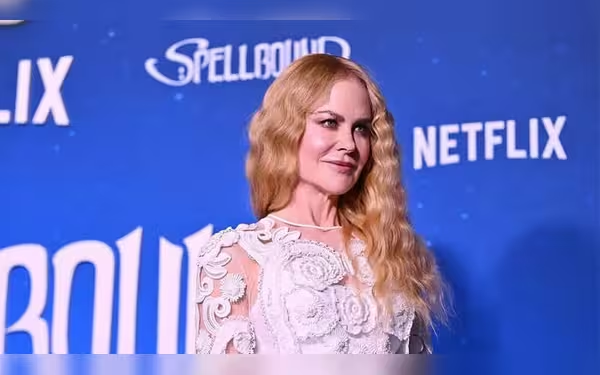Saturday, November 16, 2024 07:37 PM
Nicole Kidman Critiques Male-Centric Filmmaking
- Kidman advocates for balanced gender representation in films.
- Her comments challenge traditional Hollywood narratives.
- Calls for more diverse storytelling in the film industry.
 Image Credits: thenews.com.pk
Image Credits: thenews.com.pkNicole Kidman critiques male-centric filmmaking, urging for better gender representation and diverse narratives in Hollywood.
Nicole Kidman, a renowned actress and producer, has recently made headlines with her comments regarding the representation of women in film. In a world where storytelling often reflects societal norms, Kidman’s remarks shine a light on the ongoing conversation about gender roles in Hollywood. Her subtle dig at a legendary director, known for his male-centered movies, has sparked discussions about the need for more diverse narratives in the film industry.
During a recent interview, Kidman stated, “In general, I have to be true to the society in which a story operates.” This statement underscores her belief that films should authentically represent the world we live in, which includes a balanced portrayal of both genders. Kidman’s career has been marked by her commitment to roles that challenge traditional gender stereotypes, making her comments particularly poignant.
The director in question, while celebrated for his cinematic achievements, has often been criticized for focusing predominantly on male characters and narratives. Kidman’s critique serves as a reminder that the film industry must evolve to include more stories that resonate with a broader audience, particularly those of women and other marginalized groups.
As audiences become more aware of the importance of representation, the demand for films that reflect diverse experiences continues to grow. Kidman’s comments not only highlight the need for change but also encourage other filmmakers to consider the impact of their storytelling choices. By embracing a wider range of perspectives, the film industry can create richer, more engaging narratives that resonate with viewers from all walks of life.
Nicole Kidman’s subtle yet powerful critique of male-centered filmmaking is a call to action for the industry. It emphasizes the importance of inclusivity and representation in storytelling. As audiences, we should support films that challenge the status quo and celebrate diverse voices. After all, the stories we tell shape our understanding of the world, and it is essential that they reflect the richness of human experience.













